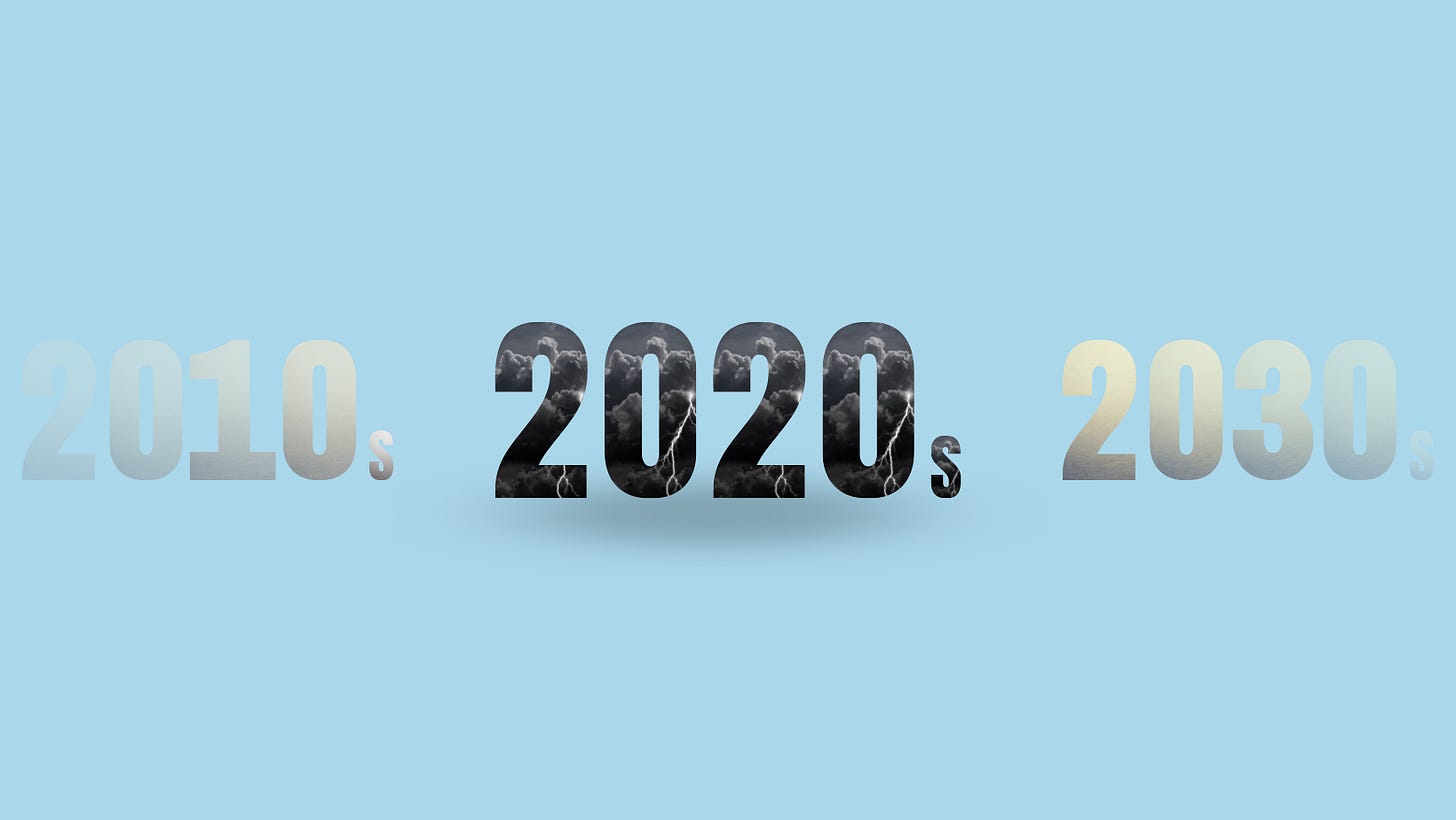The Turbulent 20s
A brief primer on what's to come
When history licked its finger and turned to page 2022, most of us (Victorians) hoped that it wouldn’t be another 2020 too. And this hope manifested into reality. At least in part.
We went from sweating and shaking from Coronavirus, to sweating and shaking from what some now call “car owner virus”. We went from fretting over vaccinations to fretting over vacillation.
Now as we edge closer to the end of the year, I think it is apparent that this year is more akin to 1991 than to 2020. In the sense that this year—punctuated with scattered events—has brought with it many changes. The kind of changes that feel like a dense fog filled with 2nd and 3rd order effects. Effects that are difficult to visualise—not because they are hidden, but because they are right in front of us.
These events—both tiny and huge—might seem disconnected on the surface but tell a deeper story of where the world is heading when you zoom out.
1991 ushered in a new world. A prosperous world. But that world buckled in 2008 and has been limping to recovery since then. And now 2022 (just like 91 before it) is ushering in a new world too.
Hear me out.
The structural weakness of the EU is starting to show.
The third and fourth largest economies are (re)awakening their militaries.
Tensions and conflicts within and between nations are on the rise.
The pandemic and its solutions have caused distortions in the economy that will linger for years to come.
More money is flowing into defence.
A bifurcated world is emerging—in finance and the internet.
Population pyramids are morphing into population mushrooms as the world ages (2019 was the first year where there were more humans aged 65+ than 5 and under).
And perhaps most importantly, populism is on the up.
The storm clouds have gathered. If you squint, you can see the three great challenges this decade will have to wrestle. Before a more localised world starts to bloom once again in the 2030s. And there will be bountiful harvests from new opportunities that will blossom over the next 8 years.
Like many others, I think we are living through history. I’ll wager this—when future historians look back at the 2020s, they will probably call it: the Age of Rage.


